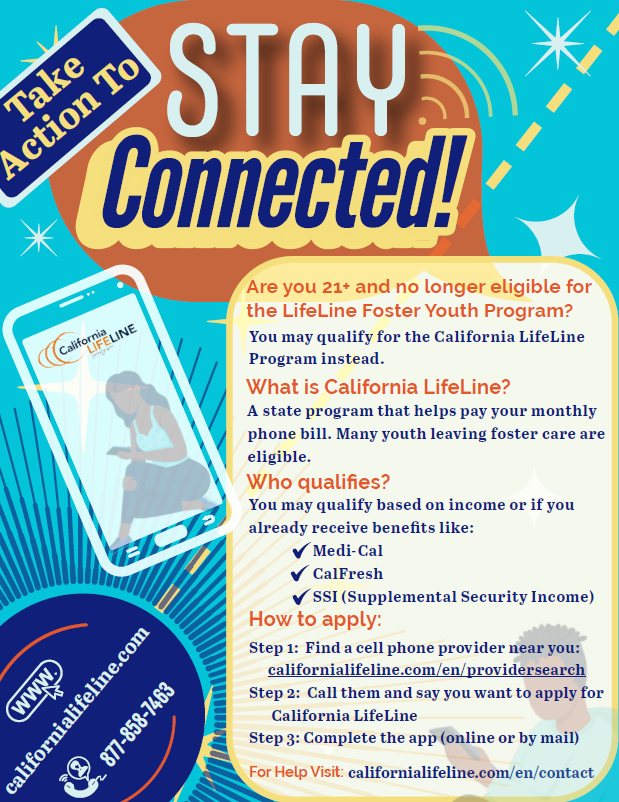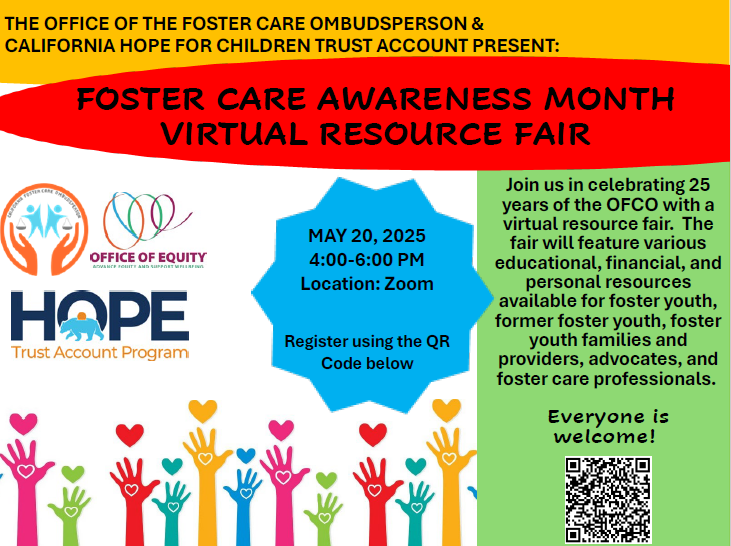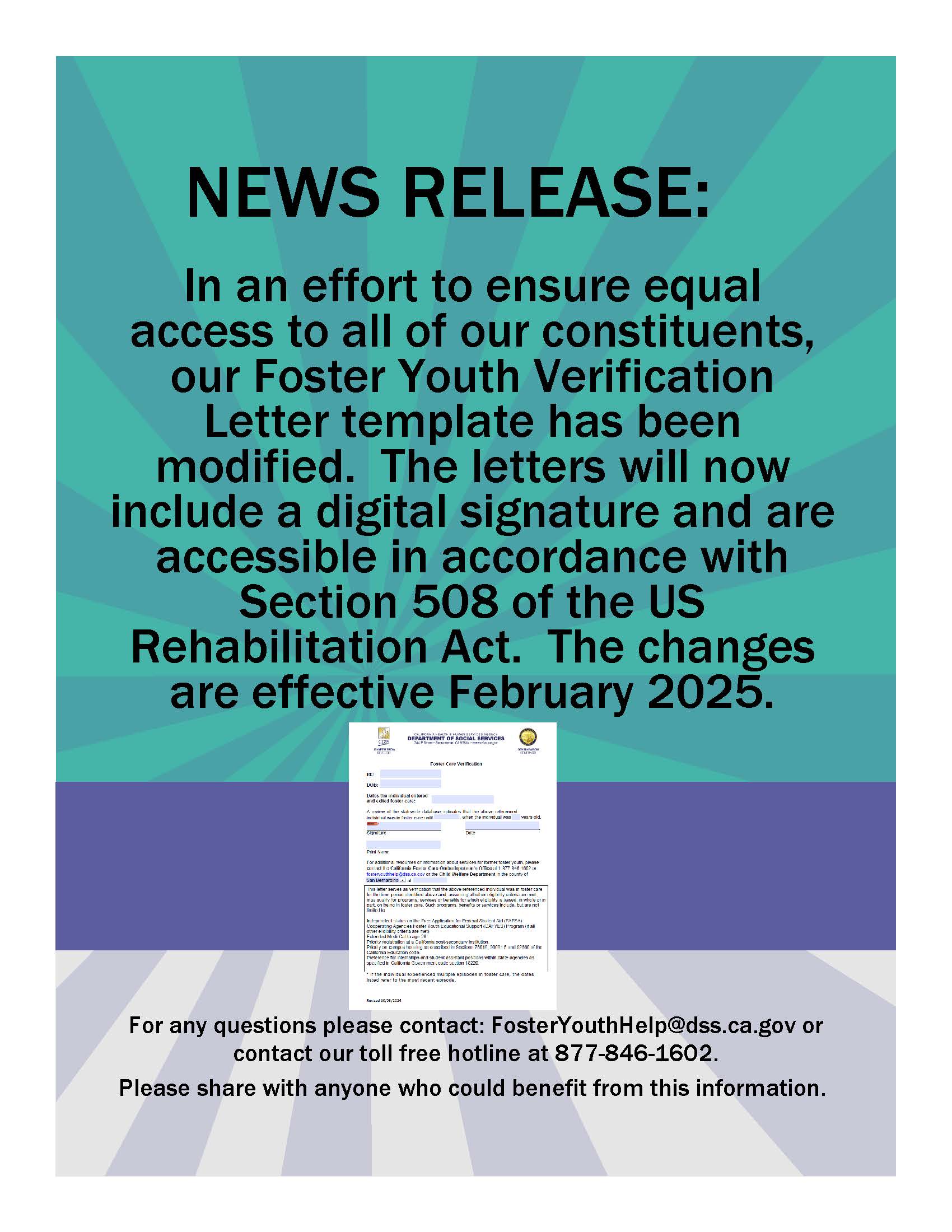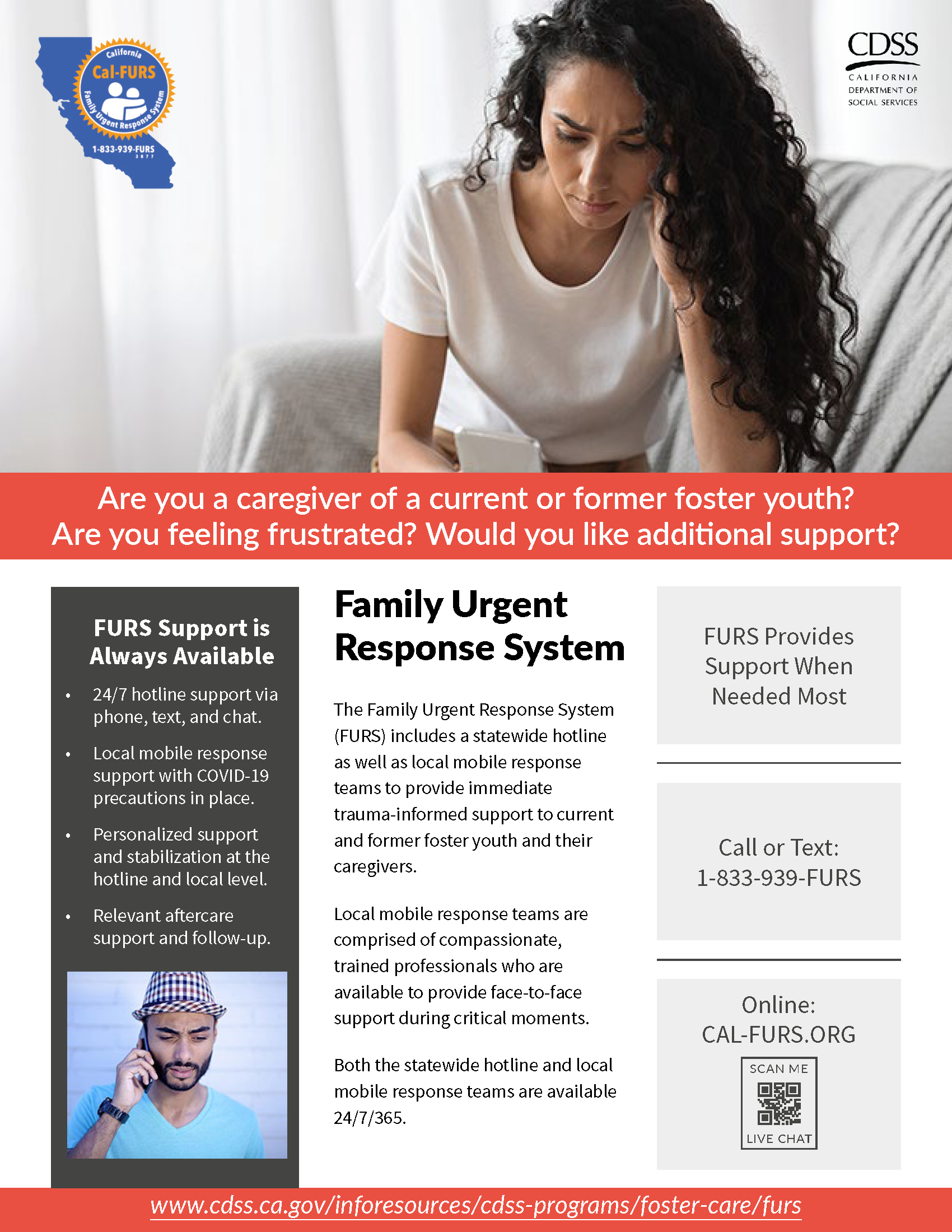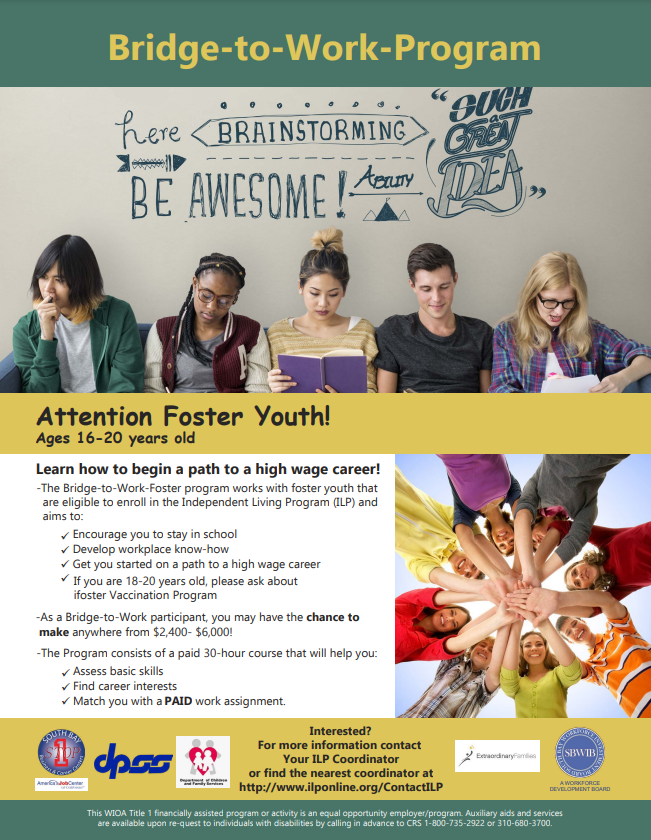Helping children and youth in foster
care get the care, placement, and
services they need.
Important Announcements and Resources
Request Foster Youth Rights Publications
We provide free Foster Youth Bill of Rights publications to foster youth, county child welfare and probation offices, and more.
File a Youth or General Complaint
We solve problems and complaints about foster youth rights violations and the care, placement, and services of youth in foster care.
Request a Verification Letter
We provide former foster youth in California with Dependency Letters (also called Verification Letters or Ward of the Court
Letters).
Request an OFCO Training
We provide trainings on the services provided by our office, the Foster Youth Bill of Rights, and the reasonable and prudent parent standards.
Foster Youth Bill of Rights
All California youth who are in foster care have rights! These rights also apply to youth that are on probation and live in an out-of-home placement, like an STRTP, group home, or foster home, as well as children living in any licensed or certified children’s facility or home in California.
The Foster Youth Bill of Rights has over 40 rights that were created to protect children and youth in foster care!
If you want to learn more about the Foster Youth Bill of Rights or you are concerned about the rights of a foster child, you can call our office at 877-846-1602. You can also file a complaint online.
What We Do
The Office of the Foster Care Ombudsperson is a neutral and independent office that helps solve problems and complaints about the care, placement, and services of children and youth in foster care. We help foster youth, social workers, probation officers, resource families and advocates understand the rights of children and youth in foster care. We also help by making policy recommendations to improve the foster care system. If you are concerned about the rights of a child in foster care, or issues related to their care, placement, or services, we may be able to help!
The OFCO provides former foster youth in California with Dependency Letters (also called Verification Letters or Ward of the Court Letters). If you are a former foster youth, click here to request a letter.
The OFCO provides trainings on the services provided by our office, the Foster Youth Bill of Rights, and the reasonable and prudent parent standards. Click here to request a training.
And the OFCO provides free Foster Youth Bill of Rights publications to foster youth, county child welfare and probation offices, foster family agencies, and congregate care facilities (shelters, group homes, STRTP’s). Click here to order publications.
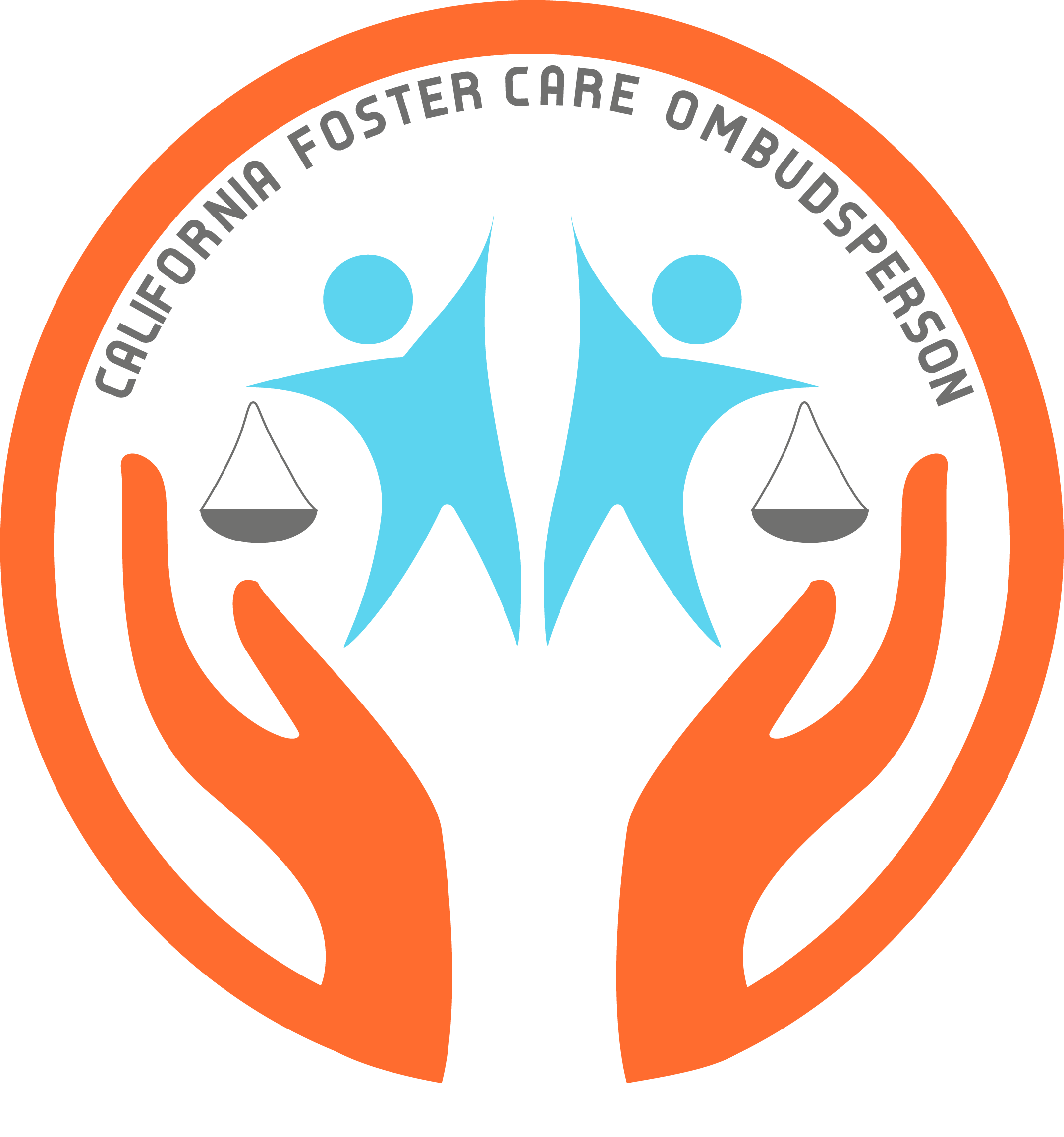

Who can contact the Ombudsperson's office?
Our office was created to serve foster youth. Foster youth calls are our first priority. Anyone who is concerned about the care, placement, services or rights of a child or youth in foster care can contact our office.
What can I contact the Ombudsperson's office about?
You can contact us about issues related to foster youth rights, care, placement, and services. You can also contact us if you need help finding resources or if you are a former foster youth who needs a verification letter (sometimes called a dependency letter or ward of the court letter). We can also answer your questions about foster care.
Is my call to the Ombudsperson's office confidential?
We have a confidentiality policy to protect the identity of people who call to make a complaint. The law allows us to release certain information to certain people in the process of conducting our duties; however, if we need to share this information we will tell you.
If there is an immediate safety issue, we may also make a report to the appropriate agencies such as the county’s Child Protective Services agency or the Community Care Licensing Division. If this happens, we will discuss this with you.
What happens after I contact the Ombudsperson's office?
Foster youth complaints are our first priority. If a youth calls to file a complaint, we will process it within one business day. Any person can file complaints on behalf of a child in foster care, as long as the concern is about the rights, care, placement, or services of the foster child. We review each case to determine if it needs further investigation. Some complaints may be referred to other places for resolution.
If we choose to investigate your complaint, we will notify of our decision to investigate, we will offer periodic updates, and we will notify you of the closure of the complaint. All complaints made to the office may include a review of records, contact with relevant agencies, and/or interviewing certain people.
What is outside the role of the Ombudsperson's office?
We cannot change court orders.
We cannot fire or change social workers.
We cannot investigate claims of child abuse or neglect.
We cannot investigate complaints about judges, attorneys, or law enforcement.
We cannot provide legal advice.
We cannot investigate issues related to child custody, child support, and family court.
*The OFCO is not an emergency intervention service. If you have immediate concerns about the safety of a child, call your county Child Protection Services or local law enforcement.
The California Office of the Foster Care Ombudsperson is dedicated to serving
foster youth in California by investigating and resolving complaints
about foster youth rights, care, placement, and services.
![]() 1-877-846-1602
1-877-846-1602
The law that governs the OFCO is Welfare and Institutions Code (WIC) 16164.

